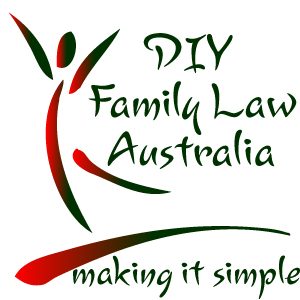For the basics about parental responsibilty and what applies if there is no Parenting Court Order or the Court is not being asked to make a Parenting Order, read our information sheet What is Parental Responsibility and what Order will the Court make.
What does the Presumption of Equal Shared Parental Responsibility mean?
The presumption of Equal Shared Parental Responsibility comes into play if a Court is asked to make a Parenting Order for a Child.
The legal effect of the presumption of Equal Shared Parental Responsibility is that when making a parenting order, the Court will usually approach the issue with the presumption that it is in the “best interests of the child” that their parents have equal shared parental responsibility for the child.
Equal shared parental responsibility is not the parents having equal time with their children or shared care of their children.
Equal shared parental responsibility requires parents to consult each other and make joint decisions about major long-term issues for the child.
If equal shared parental responsibility applies, then the parents must consult each other and make a genuine effort to attempt to make decisions jointly in relation to any major long term issues for their Child.
The presumption of Equal Shared Parental Responsibility only applies to “major long term issues” for a Child. It does not apply to short term day to day only decisions. To find out what are considered to be “major long term issues” for a Child, read our information sheet What are Major Long Term Issues.
See also our information sheet Who makes the long term, short term and day to day decisions for their Child.
The concept of Equal Shared Parental Responsibility only comes into operation once a Court is being asked to make a parenting order.
The presumption of Equal Shared Parental Responsibility also means that if a Court is making a Parenting Order as to the time a Child is to spend with each of their parents, and the court accepts that the presumption applies, then there is a particular process the court must apply to decide what time would be in the best interests of the child.
First the court must consider whether it would be in the best interests of the child to spend equal time with both parents or if not, then “Substantial and Significant Time“.
For more and to find out what time will apply, read our information sheets What is Shared Care or Equal Time and What is Substantial and Significant Time.
The court does not have to make an order for shared care or the children to spend equal time with both parents for Equal Shared Parental Responsibility to apply.
The Court can find that the presumption of Equal Shared Parental Responsibilty applies and make that order, but still order that a Child spend most of their time living with only one parent, spending some time with the other parent.
To find out if Equal Shared Parental Responsibility might apply to your situation, read our information sheet Will Equal Shared Parental Responsibility apply.
What happens if Equal Shared Parental Responsibility does not apply
If the presumption of Equal Shared Parental Parental Responsibility is successfully rebutted, then the Court might consider instead making an Order for Sole Parental Responsibility.
To learn what Sole Parental Responsibility means, read our information sheet What is Sole Parental Responsibility for a Child.
To understand when Sole Parental Responsibility might apply, see our information sheet When will Sole Parental Responsibility for a Child apply.
More Information on Child’s Time with Parents & Parental Responsibility
We also have the following Fact Sheets which will provide you with more information on this topic:
- What is Shared Care or Equal Time and will it apply to us
- What is Substantial and Significant Time and when does it apply
- What is Parental Responsibility and What types of Parental Responsibility Orders do Courts make
- What is Equal Shared Parental Responsibility
- When does Equal Shared Parental Responsibility apply
- What does Sole Parental Responsibility mean
- When will Sole Parental Responsibility be Ordered
- Who makes long term, short term and day to day decisions for the Child
- What are the major Long Term Issues that must be made by parents with Shared Parental Responsibility
- What are Grandparents Rights to see their Grandchildren
- Mediation Requirements before Court Proceedings
Connect with us on Facebook

All Topics in the Child Issues Section
- Types of Parental Responsibility Orders
- Child’s Time with Parents: Shared Care or not
- Grandparents: Rights to see Grandchildren
- Documenting a Parenting Agreement
- Best Interests of the Children
- Relocation of a Parent with a Child
- Change of a Child’s Surname
- Child Passports & Overseas Travel after Separation or Divorce
- How to change a Final Parenting Order previously made by the Court
- International Child Abduction



